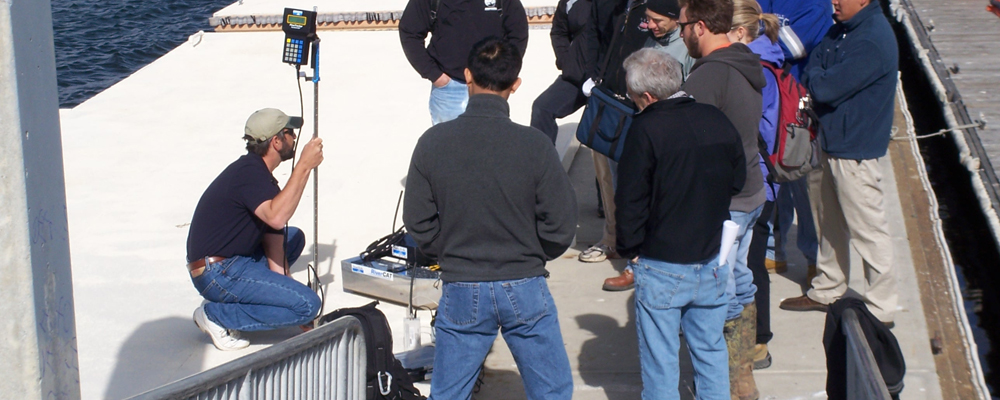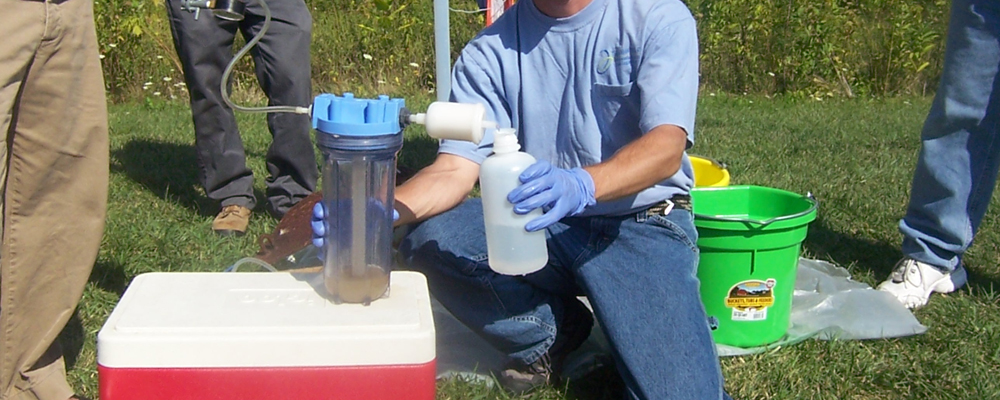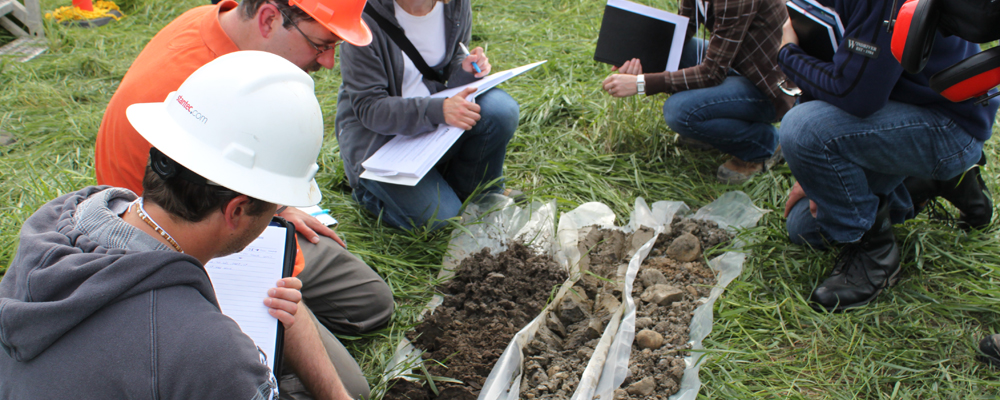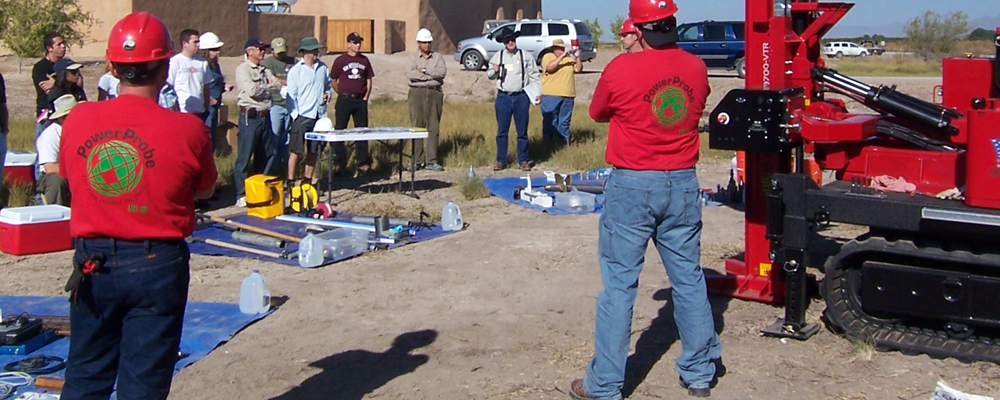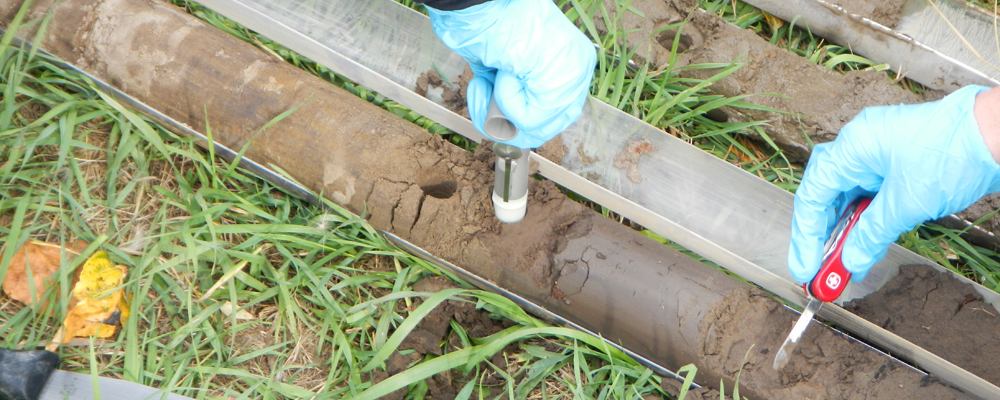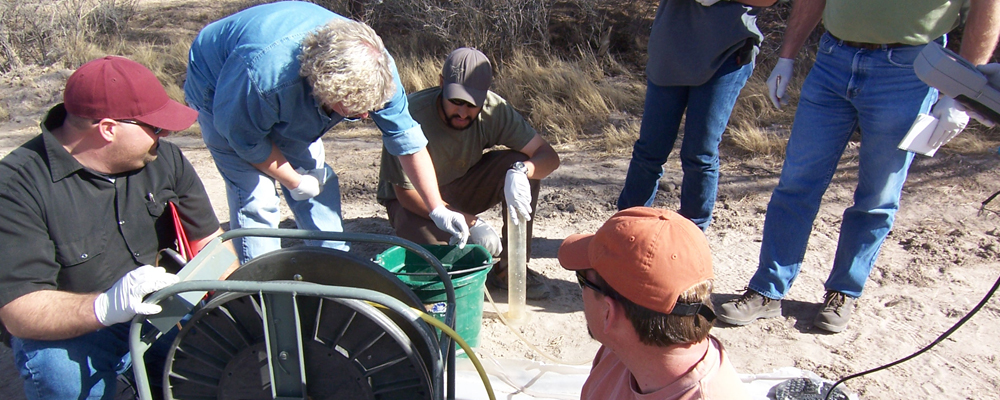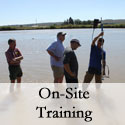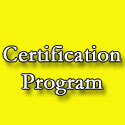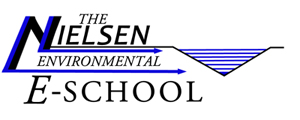An important, but often overlooked component to many environmental
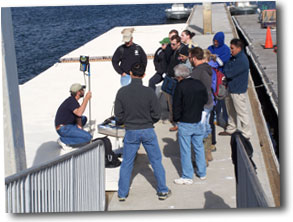 |
| Students Learn How to Set Up Flow Measurement Instrumentation on a Dock Prior to Its Deployment in Mission Bay, San Diego to Determine Flow Across the Boat Launch Area. |
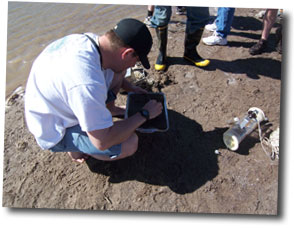 |
| Students Examine a Sediment Sample Collected From the Rio Grande River in Las Cruces, NM and Put Together a Description of the Physical and Biological Features They Observed. |
contamination investigations is surface-water and sediment sampling.
This practical, hands-on field course has been expanded for 2014! This field course teaches you how to: select optimal locations for sample collection to ensure that data generated satisfy the objectives of the investigation; effectively select the most appropriate sampling device (there are more devices out there than using the sample container!); incorporate elements of field Quality Assurance and Quality Control into the sample collection and field sample analysis program to ensure defensibility of data and samples generated; select and operate instrumentation for in-situ measurement of field parameters such as DO, Temperature, pH, ORP, Turbidity and others; determine flow velocities and patterns; select effective equipment cleaning methods; and document field activities in a defensible manner. NEW for 2014, the subject of long-term water quality measurement and monitoring in surface water systems using long-term sensors will be discussed.
This field course includes two, one half-day field sessions. The first session is designed to permit attendees to collect surface water and sediment samples using a variety of sampling devices, to generate water-quality data using a variety of field analytical instrumentation, and to measure flow in surface-water bodies. A second field session, new for 2014, will give attendees the opportunity to deploy long-term water quality sensors in a river setting and then obtain real-time data in the field and access the data remotely.
Registration Fee for 2014: $1295.00 US per person

